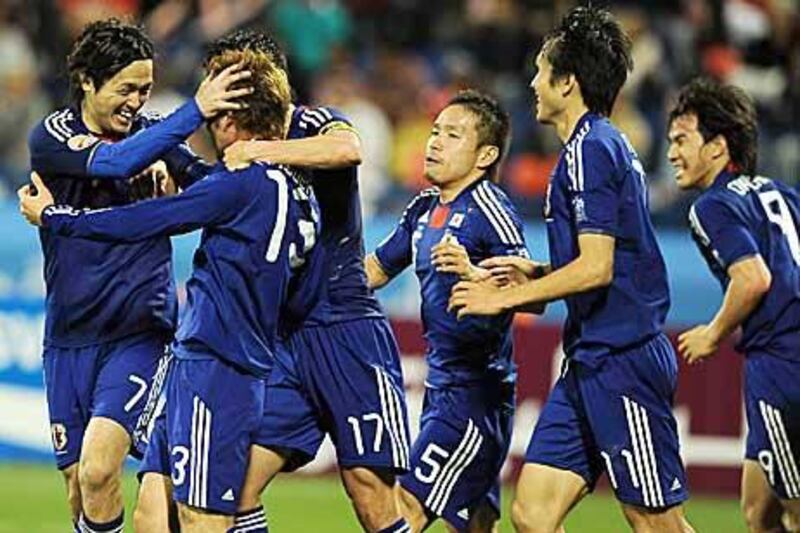DOHA // When Japan and Australia meet in the Asian Cup final tomorrow, it not only pits "Blue Samurai" fighting spirit against "Socceroos" grit, the match also represents a clash of old Asia versus new Asia.
Japan were there for the birth of the Asian Football Confederation (AFC) in 1954, on the sidelines of the Asian Games in Manila, and are one of the 12 founding members of the AFC. They are one of three countries to have won the Asian Cup three times, in 1992, 2000 and 2004.
Australia, meanwhile, became the 46th and newest member of the AFC, in 2006, and are making only their second appearance in the Asian Cup.
Japan represent old Asia stylistically, as well.
Their emphasis on work rate and a passing game was on display in their hard-fought penalty shoot-out victory over South Korea in their semi-final on Tuesday.
Meanwhile, Australia's style, blunt and direct, crushed Uzbekistan 6-0 and served notice that the new bully on the block may be from the Antipodes.
The two countries have an interesting recent history. At the 2006 World Cup, Australia overcame a 1-0 deficit to defeat Japan 3-1, a result which propelled them out of the group stages for the first time in their history.
Japan gained a measure of revenge in 2007, when they knocked out Australia in the quarter-finals of the Asian Cup, winning 4-3 in a shoot-out, a loss that still rankles with the defeated team.
"We learned some lessons that day," Lucas Neill, the Australia captain, said this week.
In qualifying for the 2010 World Cup, the sides played out a 0-0 draw before 66,000 supporters in Yokohama, and Australia clinched the top spot in the five-team Group A with a 2-1 victory over Japan before 69,000 at the Melbourne Cricket Ground.
Tim Cahill scored twice for Australia; Tulio scored for Japan, the only goal the Socceroos conceded in eight matches. Japan were runner-ups up in the group.
In South Africa last summer, however, Japan outperformed Australia. They reached the knockout phase while Australia did not make it out of a group containing Germany, Ghana and Serbia.In Doha, Japan were held 1-1 by Jordan, defeated Syria 2-1 and swamped Saudi Arabia 5-0 to win Group B. In the knockout rounds, Japan beat hosts Qatar 3-2 and drew 2-2 with South Korea before the 3-0 shoot-out victory.
Australia thrashed India 4-0, drew 1-1 with South Korea and defeated Bahrain 1-0 to win Group C. In the knockout phase, they eliminated Iraq, the defending champions, 1-0 in extra time and blitzed the Uzbeks 6-0.
Japan have come from behind in three of their matches and were tied in the final 10 minutes in another. Australia, meanwhile, have been behind only once, against South Korea, when they conceded their only goal of this tournament so far.
So here they are again, the continent's two best teams, according to the Fifa rankings (Australia 26, Japan 29) as well as the Asian Cup tournament results. The winners on Saturday can rightly consider themselves the heavyweight champions of Asia, old or new.
poberjuerge@thenational.ae
Tomorrow, 7pm, Abu Dhabi Sports 7 & 8, Aljazeera Sport 1, 1HD, +4 & +10
ALSO:
Uzbekistan fight to save their pride
Japan and Australia represent the old and the new of Asian football
The Asian Cup final on Saturday not only pits the "Blue Samurai" fighting spirit against the gritty "Socceroos", the match also represents a clash of Old Asia versus New Asia.

Editor's picks
More from the national




